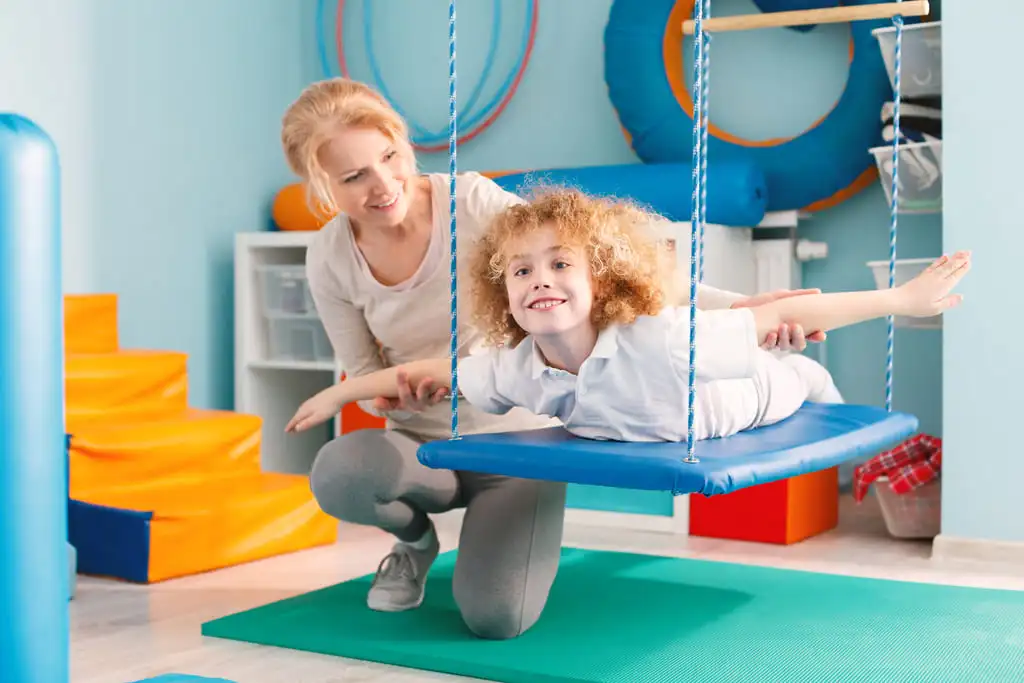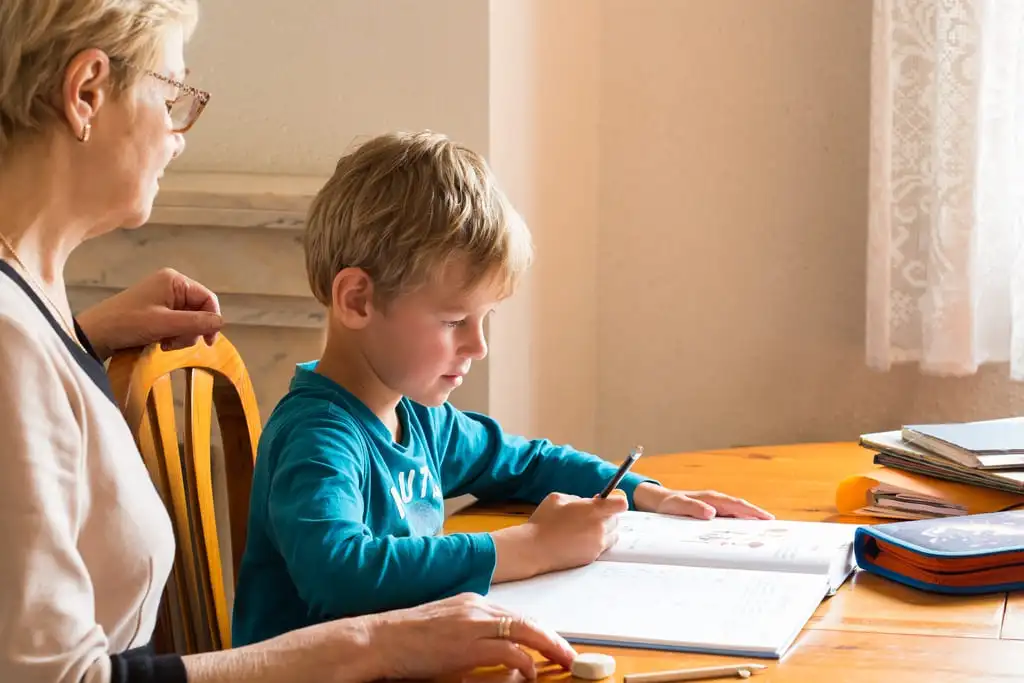Key Takeaways
- Occupational therapy helps children with a global developmental delay by addressing their sensory, motor, and cognitive skills to improve their ability to perform daily activities.
- The goals include improving independence in daily tasks, enhancing motor skills, promoting social interactions, and developing sensory processing abilities.
- Common interventions include sensory integration therapy, motor skills training, adaptive equipment provision, and environmental modifications.
- Sensory integration therapy, play-based interventions, and structured routines are among the effective techniques used in occupational therapy for global developmental delay.
- Occupational therapists collaborate with other professionals, such as speech therapists and educators, to provide comprehensive care and support for individuals with a global developmental delay.
Definition of GDD and its Characteristics
Global developmental delay (GDD) is a term used to describe a condition in which children are significantly delayed in meeting developmental milestones in several areas of functioning. This delay typically becomes apparent during early childhood and can affect a child’s cognitive, physical, communication, social, and emotional development.
One key characteristic of GDD is a delay in the development of both fine and gross motor skills. Fine motor skills involve using small muscles in the hands and fingers, which are essential for tasks such as grasping objects, writing, and using utensils. On the other hand, gross motor skills involve using larger muscles in the body and are important for activities such as walking, running, jumping, and climbing.
In addition to motor skill delays, children with GDD may also experience delays in other areas of development, such as language and communication skills, social skills, and cognitive abilities. Occupational therapy is often recommended as part of the treatment plan for children with a global developmental delay. Occupational therapists work to improve a child’s ability to perform everyday tasks and activities, such as dressing, eating, and playing. They may also work on developing fine and gross motor skills, improving coordination and balance, and enhancing overall independence.
Overview of Occupational Therapy
Occupational therapy (OT) is a healthcare profession that helps people of all ages participate in activities and tasks that are meaningful and important to them. Occupational therapists work with individuals living with physical, developmental, emotional, or cognitive challenges that affect their ability to engage in daily activities, such as self-care, work, school, and leisure.
The goal of occupational therapy is to enable children and older individuals to live life to the fullest by promoting health, well-being, and participation in meaningful activities. Occupational therapists use a holistic approach, considering the physical, emotional, social, and environmental factors that influence a person’s ability to engage in daily activities.
In children, occupational therapy is crucial in improving play, school performance, and daily activities, ultimately boosting self-esteem and a sense of accomplishment. Through occupational therapy, children can:
- Acquire basic life skills such as tooth brushing, bathing, self-feeding and dressing.
- Develop fine motor skills for grasping and releasing toys and improve handwriting or computer skills.
- Learn new positive behaviours and social skills by practising how to interact with others and manage their emotions like anger or frustration.
- Enhance eye-hand coordination for activities like playing and performing school tasks such as batting a ball or copying from a blackboard.
- Foster independence by receiving specialised equipment, such as wheelchairs, bathing aids, splints, dressing devices, and communication aids.
There are two professional levels of occupational practice: the occupational therapist (OT) and the occupational therapist assistant (OTA). Becoming an occupational therapist requires completing a degree in occupational therapy, typically taking three years full-time or up to six years part-time. However, postgraduate studies offer the opportunity to earn a master’s degree in one to two years. Upon completing the degree, one must register with the Health and Care Professions Council (HCPC) before beginning practice.
How Occupational Therapy Addresses GDD-related Challenges

As we have previously discussed, children living with a global developmental delay take longer to reach certain milestones and often face challenges with motor skills. The occupational therapist’s role is to enable children to live life more independently. For example, when it comes to developing better motor skills, they can help children play more easily by grasping and releasing the toys in a less challenging way. Additionally, improving the child’s handwriting skills helps them excel in school activities.
Children living with a global developmental delay at an early age can get angry or frustrated once the challenges begin. Still, these feelings must never become a limiting aspect of the child’s abilities and strengths. The occupational therapist is the guide who helps children accept their feelings as they are at the moment and develop their skills. The occupational therapist can also teach children how to manage their behaviour.
At Leaf Complex Care, in addition to occupational therapy, our therapy team provides nurturing therapies that help children’s lives improve, such as:
Speech and language therapy – children living with GDD may develop difficulties with communicating using language.
Behavioural therapy – helping children through Positive Behaviour Support (PBS) to reduce challenging behaviours.
Our occupational therapists’ approaches to intervention:
Developmental – helping children use scissors, thread beads, or drawing with crayons.
Social model (inclusive play) – encouraging inclusive play where children of all abilities can participate together promotes social inclusion and understanding.
Psychological – using deep breathing, progressive muscle relaxation, stress balls or fidget toys.
Physical – helping children improve their crawling, climbing, walking, and balance.
Sensory – helping children with sensory sensitivities, such as filling a tub with materials like rice, beans, shredded paper, or water beads and hiding objects for children to find by touch.
Behavioural – using PBS strategies and positive reinforcement to build positive behaviours.
Cognitive – playing memory-matching games and solving puzzles to build cognitive development.
Benefits of Occupational Therapy for GDD
Occupational therapy offers a holistic approach to supporting individuals with a global developmental delay, addressing various challenges to enhance their overall development and quality of life. Through a practice model that helps shape the scientific bases, evidence, and evaluation of the therapy, occupational therapists aim to improve motor skills, enhance cognitive abilities, and promote social-emotional development in individuals with GDD. By focusing on these key areas, OT helps individuals with developmental delays build essential skills and achieve greater independence in daily activities.
Improving Motor Skills
Occupational therapists use play-based activities and exercises to target specific motor skills. These activities may include playing with toys that require grasping, building with blocks, or engaging in sports activities. Sensory integration therapy can help children process and respond to sensory information, improving motor coordination. Activities may include swinging, jumping, and playing with tactile materials. For children to gain strength and coordination, therapists may design exercises to improve muscle strength, balance and coordination. These exercises may include balancing on a balance board, crawling through tunnels, or playing catch.
Learn how the role of play impacts the development of children living with a global developmental delay.
Enhancing Cognitive Abilities
Cognitive abilities refer to the mental skills and processes involved in acquiring knowledge, understanding, and reasoning. These abilities allow individuals to perceive, process, store, and retrieve information.
Occupational therapists can enhance children’s cognitive abilities through a variety of practices, including:
Cognitive training – structured activities designed to improve attention, memory and problem-solving.
Executive functioning skills training – teaching strategies for time management, task prioritisation and impulse control.
Play-based activities – play activities that help children learn specific cognitive skills such as problem-solving, creativity and imagination.
Social-emotional Development
Occupational therapists can enhance children’s social-emotional development through various practices, including:
Social Skills Training – role-playing, modelling, and social stories to help children practice and develop these skills.
Emotion Regulation Techniques – deep breathing exercises, mindfulness techniques, and using visual supports to identify feelings.
Social Stories – short narratives that describe social situations and appropriate behaviours.
Incorporating Occupational Therapy into Treatment Plans
Occupational therapy is the holistic assessment and treatment of physical, psychological, social and environmental needs. Incorporating occupational therapy into treatment plans involves several vital steps to ensure that the therapy is practical and addresses the individual’s specific needs.

Leaf Complex Care’s therapy team takes critical steps towards creating the treatment plan:
An initial screening assessment to gather information about the person we support and assess risks. This will identify whether there is a functional need for occupational therapy input.
Based on the assessment, goals should be set collaboratively with the individual and their family or caregivers. These goals should be specific, measurable, achievable, relevant, and time-bound (SMART).
Once goals are established, a treatment plan is developed outlining the strategies and interventions that will be used to achieve these goals. This plan should be tailored to the individual’s needs and preferences.
Occupational therapists use a variety of interventions to help individuals achieve their goals.
Progress towards goals should be regularly monitored to determine the effectiveness of the interventions. Based on progress and feedback from the individual and their family or clinicians, adjustments to the treatment plan may be made.
Evaluating whether the individual’s restriction has been reduced or engagement has been maintained or improved.
Maximising Positive Outcomes
Leaf Complex Care’s occupational therapy uses specific, purposeful activities to prevent challenges and risks and help increase a person’s independence and satisfaction in all aspects of daily life, supporting a balance of health and well-being. Additionally, it aims to maintain or improve independence and the ability to carry out meaningful daily living tasks.
Our occupational therapists are involved in the individual’s daily life with a focus on positive outcomes by creating:
Social Support:
- Understanding the level of support needed for different activities, such as verbal prompting, physical support, communication tools, and supporting carers and family.
- Changing the environment to suit the person they support needs.
- Creating activity planners to build meaningful routines - practising fine motor, gross motor skills, social skills, cognitive skills, and emotional regulation in ADLs.
Aid Support:
- Using sensory aids, e.g., physical aids like a perching stool, and developmental delay aids, e.g., adapted devices.
Get Occupational Therapy Support with Leaf Complex Care
Leaf Complex Care offers occupational therapy support for individuals of all ages with a wide range of needs. Our team of experienced occupational therapists is dedicated to helping individuals achieve their goals and improve their quality of life. Whether you’re looking to enhance your child’s development, improve your own independence, or address specific challenges, our therapists are here to help.
Our therapy services (in-house PBS practices, occupational therapy and speech and language therapy) are cost-free and designed to empower individuals to reach their full potential and achieve their goals.
Leaf Complex Care occupational therapy services include:
Assessing and understanding the strengths, motivations and limitations of the people we support
Building therapeutic rapport
Utilising strength and motivation to improve function in ADLs and well-being
Creating measurable goals and outcomes to help shape further person-centred care planning and goals
Enabling the person we support to make choices and have options about their therapeutic goals
Family and clinician support to confidently continue the input for the person and their environment
Creating educational resources and offering occupational therapy advice to our family of organisations within the Catalyst Care Group
At Leaf Complex Care, we believe everyone deserves the opportunity to live life to the fullest. Contact us today to learn more about how we can support you or your loved one on the journey to improved health and well-being.
Office contact details: Bristol Slough Birmingham Somerset


















